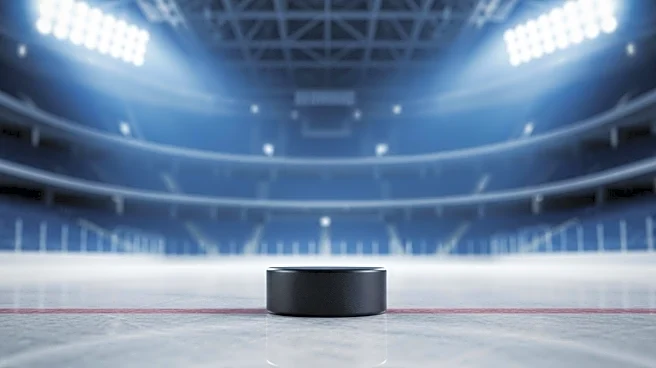What's Happening?
The National Hockey League (NHL) has announced significant changes to the regular season format, affecting the New York Rangers and other teams. According to NHL insider Pierre LeBrun, the 2026-27 season will commence in September instead of October, with the regular season extended to 84 games. The Stanley Cup will be awarded in mid-June, and the preseason will be shortened to four games. These changes are part of the Collective Bargaining Agreement (CBA) signed in 2020, which will run through the 2025-26 season. Additional changes include a salary cap during playoffs, no player dress code, increased minimum wage, reduced maximum contract length, elimination of 'paper transactions,' participation in the 2030 Olympic Games, and mandatory neck guards for new players.
Why It's Important?
These changes are poised to impact the NHL's operational dynamics and player welfare. The extended regular season and reduced preseason may lead to fewer injuries, addressing a long-standing concern among fans and players. The salary cap during playoffs could alter team strategies and financial planning. The removal of player dress codes and changes in contract lengths reflect a shift towards modernizing league policies. Participation in the Olympics could enhance international exposure and growth for the NHL. These adjustments may influence team management decisions, player negotiations, and fan engagement.
What's Next?
As the NHL prepares for these changes, teams will need to adjust their training schedules and strategies to accommodate the new season format. The league's participation in the 2030 Olympics will require coordination with international sports bodies. Teams and players will likely begin discussions on how the new salary cap and contract rules will affect their future plans. Fans can expect a more dynamic and potentially competitive season with the extended game schedule.
Beyond the Headlines
The NHL's decision to modernize its policies could set a precedent for other sports leagues facing similar challenges. The emphasis on player safety with mandatory neck guards and reduced preseason games highlights a growing concern for athlete welfare. The league's participation in the Olympics may foster greater global interest in ice hockey, potentially expanding its fan base and market reach.











